of Victoria

PhD (Simon Fraser University, 2000)
Human action and social movements, social theory, phenomenology, postcolonial studies, violence and nonviolence
Peyman Vahabzadeh was born and raised in Iran. He immigrated to Canada in 1989 and feels at home in coastal British Columbia.
Dr. Vahabzadeh received his BA in Sociology and Anthropology and his PhD in Sociology from Simon Fraser University (2000). Vahabzadeh’s dissertation, which was supported by a SSHRC Doctoral Fellowship and supervised by Dr. Ian Angus, was awarded the SFU Dean of Graduate Studies Convocation Medal for Academic Excellence in the Faculty of Arts (2001).
Between 2001 and 2003, Dr. Vahabzadeh held a SSHRC-funded Postdoctoral Fellowship in the Department of Political Science, University of Victoria (under the supervision of Dr. Warren Magnusson). Dr. Vahabzadeh has taught sociology, political science, CSPT, social justice studies, and humanities at SFU, UVic and Brock University (Ontario).
Dr. Vahabzadeh’s lifelong interest is in human (collective) action and social movements. He continues to study the generative power of social movements for societal renewal and the conditions under which individuals become actors, activists, or agents—in short, the historical individual.
Dr. Vahabzadeh uses a rather unique approach to study this vast and complex area. His approach is called radical (or temporal) phenomenology, a recent extension of the long tradition of phenomenology and phenomenological sociology. Radical phenomenology places acting and thinking in epochal frames, showing that truth has a temporal character, conditioned by different eras offering different, and changing, possibilities for acting and thinking. Combined with his interest in Continental European thought in the nineteenth and twentieth century and postcolonial studies, phenomenology has become the guiding theory that informs the scholarly and non-scholarly works of Dr. Vahabzadeh.
His areas of research and teaching include: classical and contemporary social theory, social movements, phenomenology, exile, postcolonial studies, violence and nonviolence, and Iranian Studies. Dr. Vahabzadeh teaches undergraduate and graduate courses in social movements, coloniality and postcoloniality, social change, violence and nonviolence, and social justice in the Department.
Dr. Vahabzadeh has also authored eight books in Persian in poetry, fiction, literary criticism, and memoirs. His research articles, essays, poems, short stories, memoirs, literary criticism, and interviews have appeared in English, Persian, Spanish, German, Kurdish, and French.
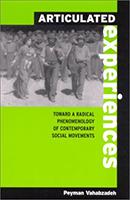
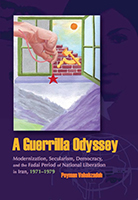
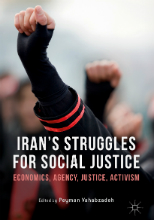
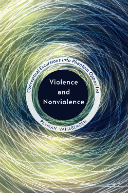
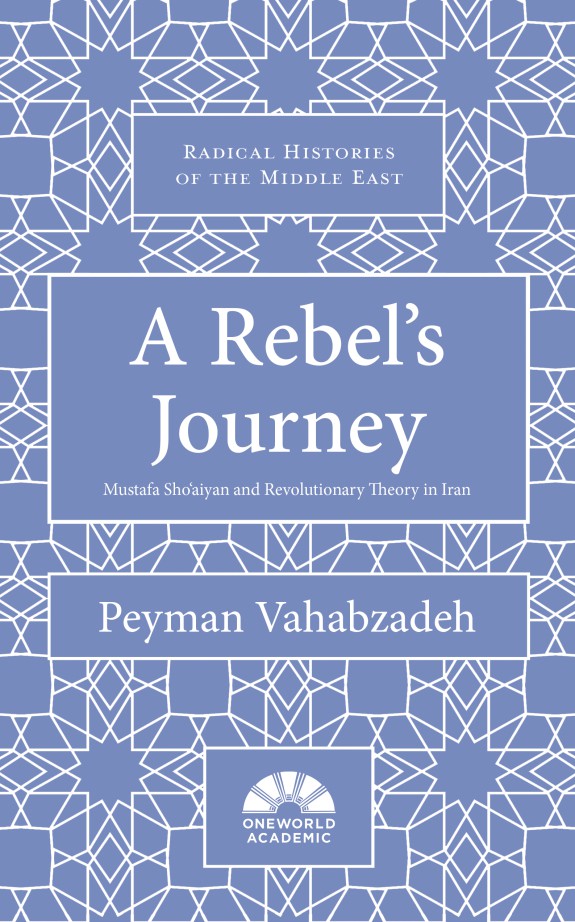
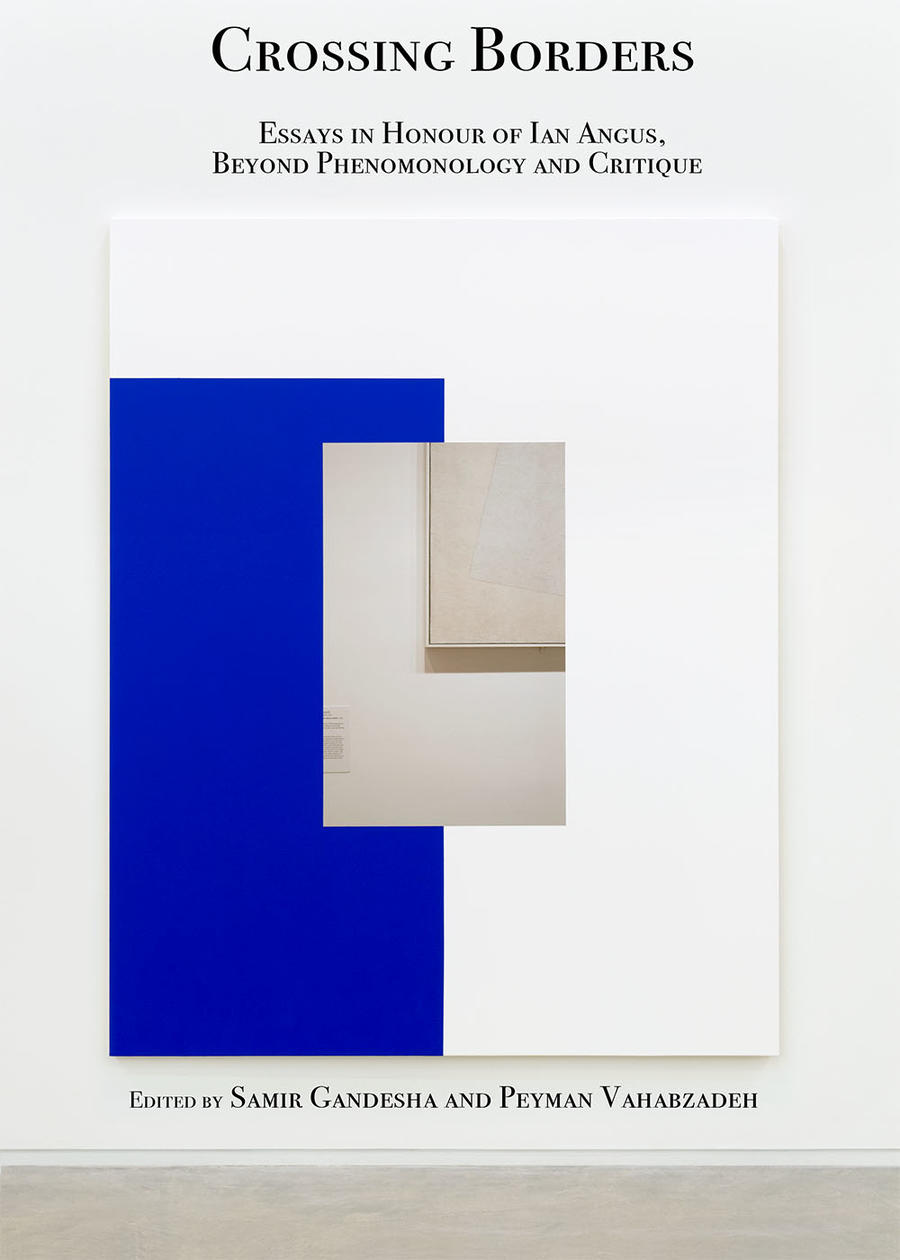
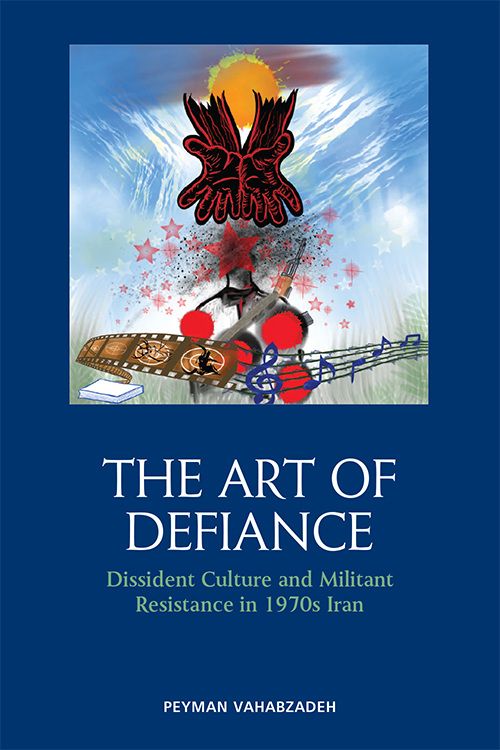
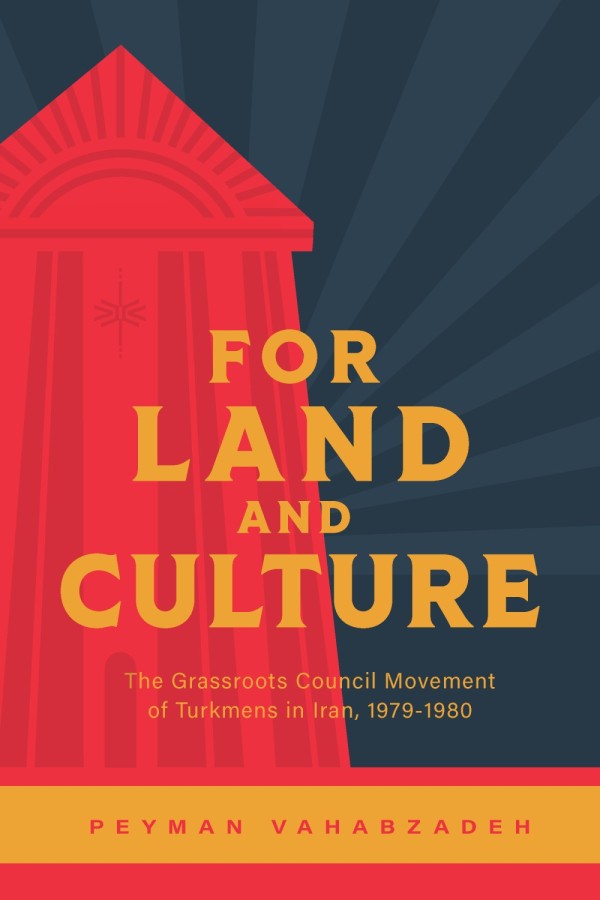
Peyman Vahabzadeh. 2024. For Land and Culture: The Grassroots Council Movement of Turkmens in Iran, 1979-1980 (Winnipeg: Fernwood Publishing).
Vahabzadeh, Peyman. 2022. The Art of Defiance: Dissident Culture and Militant Resistance in 1970s Iran (Edinburgh: Edinburgh University Press).
Samir Gandesha and Peyman Vahabzadeh, eds. 2020. Crossing Borders: Essays in Honour of Ian H. Angus; Beyond Phenomenology and Critique (Winnipeg: ARP Press).
Peyman Vahabzadeh. 2019. Violence and Nonviolence: Conceptual Excursions into Phantom Opposites (Toronto: University of Toronto Press).
Peyman Vahabzadeh. 2019. A Rebel’s Journey: Mostafa Sho‘aiyan and Revolutionary Theory in Iran (London, UK: OneWorld).
Peyman Vahabzadeh, ed. 2017. Iran's Struggles for Social Justice: Economics, Agency, Justice, Activism (New York: Palgrave Macmillan).
Peyman Vahabzadeh. 2015. Parvis Sadri: A PoliticalBiography (Vancouver: Shahrgon Books). In Persian
Peyman Vahabzadeh. 2013. Exilic Meditations: Essays on A Displaced Life (London, UK: H&S Media).
Peyman Vahabzadeh. 2010. A Guerrilla Odyssey: Modernization, Secularism, Democracy and the Fadai Discourse of National Liberation in Iran, 1971-1979 (Syracuse, NY: Syracuse University Press).
Peyman Vahabzadeh. 2003. Articulated Experiences: Toward A Radical Phenomenology of Contemporary Social Movements (Albany, NY: State University of New York Press).
Peyman Vahabzadeh (Guest Editor). 2003. West Coast Line. Special issue on “Writing Rupture: Iranian Emigration Literature.”
Geoffry W. Robbin & Peyman Vahabzadeh (Guest Editors). 2007. Journal for Cultural and Religious Theory. Special issue on “Democracy, Religion, and the Politics of Fright.”
Peyman Vahabzadeh. 2021. "Students for Freedom and Equality: The Inevitable Return of the Left in Post-Revolutionary Iran." Iranian Studies. 54:5-6 (September-December). 843-853. https://doi.org/10.1080/00210862.2020.1836952
Peyman Vahabzadeh. 2016. "Sites of Collective Actiion." Seminar 679 (March 2016). 44-51.
Peyman Vahabzadeh. 2015. "Phenomenology and Literature." Inquire: Journal of Comparative Literature 4:2 (November 2015). Available at http://inquire.streetmag.org/articles/162
Peyman Vahabzadeh. 2015. "Acting and the World: A Tripartite Phenomenological Concept of Violence." Heathwood Journal of Critical Theory 1:1 (September 2015). 174-97.
Peyman Vahabzadeh. 2014. "Homecoming to No Home: Reflections on Samir Gandesha's 'Hegel's Homecoming of Spirit'." Contours 4 (Summer 2014). Available at http://www.sfu.ca/humanities-institute/?p=2964
Peyman Vahabzadeh. 2011. “SAKA: Iran’s Grassroots Revolutionary Workers’ Organisation.” Revolutionary History 10:3 (Spring 2011). 348-359.
Peyman Vahabzadeh. 2011. “Mostafa Sho'a'iyan: An Iranian Leftist Political Thinker Unlike His Peers” Revolutionary History 10:3 (Spring 2011). 360-375.
Peyman Vahabzadeh. 2011. “Secularism and the Iranian Militant Left: Cultural Issues or Political Misconception?” Comparative Studies of South Asia, Africa, and the Middle East 31:1 (March 2011). 85-93.
Peyman Vahabzadeh. 2009. “Ultimate Referentiality: Radical Phenomenology and the New Interpretive Sociology.” Philosophy and Social Criticism 35:4 (May 2009). 447-65.
Peyman Vahabzadeh. 2008. “Where Will I Dwell? A Sociology of Literary Identity within Iranian Diaspora.” Comparative Studies of South Asia, Africa, and the Middle East 28:3 (Fall 2008). 495-512.
Peyman Vahabzadeh. 2007. “The Conditions of Subalternity: Reflections on Subjectivity, Experience and Hegemony.” Socialist Studies/Études Socialistes 3:2 (Fall 2007). 93-113.
Peyman Vahabzadeh. 2007. “Measure and Democracy in the Age of Politics of Fright.” Journal for Cultural and Religious Theory 8:2 (Spring 2007). 8-27.
Peyman Vahabzadeh. 2007. “Mostafa Sho‘aiyan: The Maverick Theorist of the Revolution and the Failure of Frontal Politics in Iran.” Iranian Studies 40:3 (June 2007). 405-425.
Peyman Vahabzadeh. 2007. “Mustafa Shu‘a‘iyan and Fada`iyan-i Khalq: Frontal Politics, Stalinism, and the Role of Intellectuals in Iran.” British Journal of Middle Eastern Studies 34:1 (April 2007). 43-61.
Peyman Vahabzadeh. 2006. “Reflections on A Diremptive Experience and Four Theses on Origins and Exile.” Journal for Interdisciplinary Crossroads 3:1 (April 2006). 163-181.
Peyman Vahabzadeh. 2005. “Of Hegemonies Yet to Be Broken: Rhetoric and Philosophy at the Age of Accomplished Metaphysics.” The European Legacy 10:4 (June 2005). 375-388.
Peyman Vahabzadeh, 2001. "A Critique of Ultimate Referentiality in the Social Movement Theory of Alberto Melucci." Canadian Journal of Sociology 26:4 (December 2001). 611-633.
Peyman Vahabzdeh, 1996. "Space, Identity, and Bilingual Poetry: Rethinking Iranian 'Emigration Poetry'." The Literary Review 40:1 (Fall 1996). 42-58.
Peyman Vahabzadeh. 2023. “Exceptions to Exceptionalisms! Or What MENA Offers to World History,” in Mojtaba Mahdavi (ed.), The Myth of Middle East Exceptionalism: The Unfinished Project of MENA Social Movements (Syracuse University Press). 29-45.
Peyman Vahabzadeh. 2021. “Foreword” to Persian translation of Chantal Mouffe’s For a Populist Left, translated by Hossein Rahmati (Tehran: Nashr-e Akhtaran). 13-17. In Persian.
Peyman Vahabzadeh. 2021. “Foreword” to Saeed Sharifi and Fatemeh Khoshnevisan, A True Human Is My Dream: On the Works of Peyman Vahabzadeh (Isfahan: Sadra Sepahan). x-xvii. In Persian.
Peyman Vahabzadeh. 2020. "A Singular Intellectual: Mostafa Sho'aiyan, a Revolutionary Scholar," in Ramin Jahanbegloo (ed.), Mapping the Role of Intellectuals in Iranian Modern and Contemporary History (London: Lexington Books). 217-234.
Peyman Vahabzadeh. 2020. "La Revolución Islámica: Historia de una Reversión,” in Moises Garduño Garcia (ed.), Irán A 40 Años De Revolución: Sociedad, Estado Y Relaciones Exteriores (Mexico City: Universidad Nacional Autónoma de México). 37-56. In Spanish.
Samir Gandesha and Peyman Vahabzadeh. 2020. “Introduction,” in Gandesha and Vahabzadeh, eds., Crossing Borders: Essays in Honour of Ian H. Angus (Winnipeg: ARP Press). 11-19.
Ian Angus, Samir Gandesha, and Peyman Vahabzadeh. 2020. “Ian Angus in Conversation: Beyond Phenomenology and Critique,” in Gandesha and Vahabzadeh, eds., Crossing Borders: Essays in Honour of Ian H. Angus (Winnipeg: ARP Press). 23-69.
Peyman Vahabzadeh. 2020. “Toward a Critical Topology, or How to Act in the Playgrounds of Being,” in Gandesha and Vahabzadeh, eds., Crossing Borders: Essays in Honour of Ian H. Angus (Winnipeg: ARP Press). 368-386.
Peyman Vahabzadeh. 2019. “La influencia oblicua de la fenomenología husserliana en La construcción social de la realidad,” in David E. Builes M. and Federico Vélez Vélez (eds.), Objectividad, subjetividad y vida cotidiana: A 50 años de la aparición de La construcción social de la realidad de Peter Berger y Thomas Luckmann (Manizales, Colombia: Universidad de Manizales). 15-40. In Spanish.
Peyman Vahabzadeh, 2017. "Introduction: How to Approach This Book," in P. Vahabzadeh (ed.), Iran's Struggles for Social Justice: Economics, Agency, Justice, Activism (New York: Palgrave Macmillan). 1-7.
Peyman Vahabzadeh, 2017. "Conceptual and Historical Preparations for a Multidisciplinary Study of Social Justice in Iran," in P. Vahabzadeh (ed.), Iran's Struggles for Social Justice: Economics, Agency, Justice, Activism. (New York:Palgrave Macmillan). 9-27.
Peyman Vahabzadeh, 2017. "Social Justice and Democracy in Iran: In Search of the Missing Link," in P. Vahabzadeh (ed.), Iran's Struggles for Social Justice: Economics, Agency, Justice, Activism. (New York; Palgrave Macmillan). 289-306.
Peyman Vahabzadeh. 2015. "Rebellious Action and the 'Guerilla Poetry': Dialectics of Art and Life in the 1970s Iran," in Kamran Talattof (ed.), Persian Language, Literature and Culture: New Leaves, Fresh Looks; In Honor of Ahmad Karimi-Hakkak (London/New York: Routledge). 103-22.
Peyman Vahabzadeh. 2015. "A Generation's Myth: Armed Struggle and the Creation of Social Epic in the 1970s Iran." in Houchang Chehabi, Peyman Jafari, and Maral Jefroudi (eds.), Iran in the Middle East: Transnational Encounters and Social History (London: I.B. Tauris). 183-98.
Peyman Vahabzadeh. 2012. “Oblivion of Origins: Of Hegemonic Universals and Hybrid Civilizations,” in Andy Knight and Mojtaba Mahdavi (eds.), Towards “the Dignity of Difference”: Neither “the Clash of Civilizations” nor “the End of History” (London: Ashgate Publishing). 43-53.
Peyman Vahabzadeh. 2012. “Civil Society in Iran: The Story of a Century-Long Struggle,” in Ramin Jahanbegloo (ed.), Civil Society and Democracy in Iran (New York: Lexington Books). 3-25
Peyman Vahabzadeh. 2010. “Reflections on a Diremptive Experience and Four Theses on Origins and Exile,” in David Kettler (ed.), The Limits of Exile (Glienicke, Germany: Galda). 163-80.
Peyman Vahabzadeh. 2009. “On the Merits of Orientalism: A Heretical Essay in the Sociology of Knowledge,” in Sean P. Hier, Daniel Lett, & B. Singh Bolaria (eds.), Racism and Justice: Critical Dialogue on the Politics of Identity, Inequality, and Change (Halifax: Fernwood Press). 94-106.
Peyman Vahabzadeh. 2007. “Pishvazheh: Takandishi-ye Sho‘aiyan va barkhord-e chap-e a‘ini” [“Foreword: Sho‘aiyan’s Singular Thought and the Reaction of the Doctrinal Left”], in Cosroe Chaqueri (ed.), Mostafa Sho‘aiyan, Hasht nameh beh cherik’ha-ye Fadai khalq: Naqd-e yek manesh-e fekri [Mostafa Sho‘aiyan, Eight Letters to the People’s Fadai Guerrillas: Critique of An Approach] (Tehran: Nashr-e Ney). iv-xix.
Peyman Vahabzadeh. 2004. “The Space Between Voices: Nima Yushij and the ‘Receding Signified’,” in Ahmad Karimi-Hakkak & Kamran Talattof (eds.), Essays on Nima Yushij: Animating Modernism in Persian Poetry (Leiden, The Netherlands: Brill). 193-219.
Peyman Vahabzadeh. 2001. “Technological Liberalism and the Anarchic Actor,” in Ian Angus (ed.), Anarcho-Modernism: Toward A New Critical Theory, In Honour of Jerry Zaslove (Vancouver: Talon Books). 341-350.
Peyman Vahabzadeh. 2022. "Ali Rahnema, Call to Arms: Iran's Marxist Revolutionaries, Formation and Evolution of the Fada'is, 1964-1976." Historial Materialism. Available at: https://www.historicalmaterialism.org/index.php/book-review/review-call-to-arms-irans-marxist-revolutionaries (accessed 2 June 2022).
Peyman Vahabzadeh. 2007. “Globalization and the New Modes of Activism.” Labour/Le Travail 59 (Spring 2007). 211-224.
Peyman Vahabzadeh. 2005. “The Secular Good in Denial: The Lesser Evil and the Politics of Fright.” Journal for Cultural and Religious Theory 6:2 (April 2005). 117-129.
Peyman Vahabzadeh. 2005. “Bizhan Jazani and the Problems of Historiography of the Iranian Left.” Iranian Studies 38:1 (March 2005). 167-178.
Peyman Vahabzadeh. 2022. “The Art of Defiance: Dissident Culture and Militant Action in 1970s Iran” (interview). Jadaliyya (19 August 2022).
Peyman Vahabzadeh, 2017. Poems. Poetry at Sangam. December 2017.
Peyman Vahabzadeh. 2010. “Civil Society and Repressive Development.” Seminar 616 (December 2010). 20-25.
Peyman Vahabzadeh. 2009. "After the Storm" Shoes or No Shoes, Netherland's Museum of Shoes